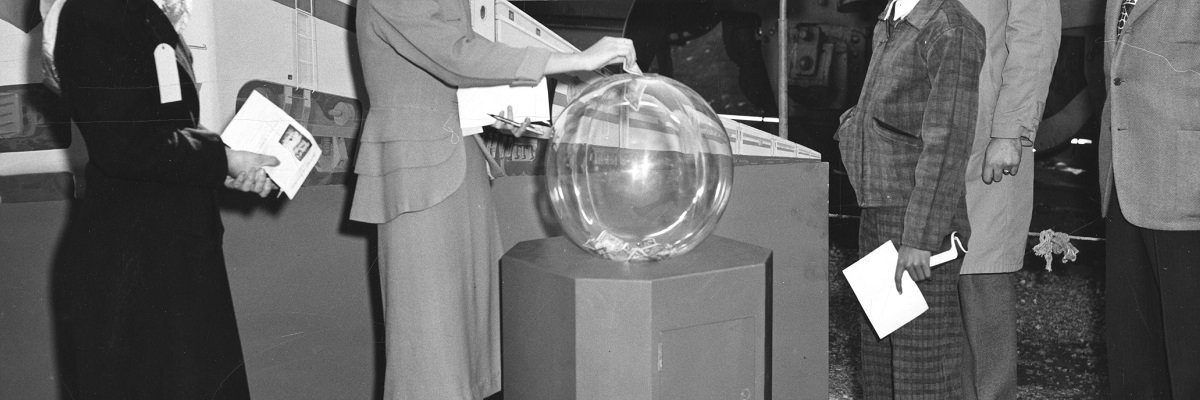Whether you’re a first-time requester or a FOIA veteran, a hefty price tag tied to public records can get in the way of government transparency. Thanks to crowdfunding, however, you can now tap the power of the Internet and public interest to get the funding for both pricey records requests and larger transparency and editorial projects.
Since its introduction, MuckRock’s crowdfunding feature has helped raise thousands of dollars for the release of information on major city bids, historical investigations, and issues local and national.
Thinking of starting your own public records campaign? Already submitted a request, only to be thwarted by fees? We chatted with three MuckRock users who have had crowdfunding success to hear their tips for getting over crowdfunding anxieties, getting the word out, and, ultimately, getting records.
Make it concrete.
The very fact “public” records cost money can inspire an audience into action, especially if the documents touch on a cause they care about. To begin with, though, it’s important to be able to justify the amount you’re trying to raise.
“It helps to have filed requests and then to get back the government agency response saying, ‘It’s going to cost X.’ Then crowdfund for a specific goal that is reflective of the specific threshold that has been imposed by the governmental agency,” suggests David Sirota, a journalist with International Business Times. “You’re not just saying randomly ‘I need to raise $5,000.’ You’re saying, ‘Look, I’m trying to get these specific documents, and this government agency is saying I need to give them this. Help me raise this to get these documents.’ Make it as concrete as possible.”
Yes -- donate right here to help us get emails between oil/gas lobbyists & GOP lawmakers released: https://t.co/Up1xOkXPVV https://t.co/rWnlwxz2JM
— David Sirota (@davidsirota) May 5, 2017
Contextualize your crowdfund.
“Unless it’s the most bizarrely arcane thing, there are going to a lot of other people who care,” Jonathan Cohn of No Boston 2024 says. “Think about when you’ve donated money to causes yourself and think about how you’ve enjoyed donating and realize that other people will be thinking that themselves.”
Maybe you’ve made your request for information or maybe you’re still plotting where to begin, but whatever the topic, there’s a good chance that that information - or the story of how you got it - will be interesting or important to someone else, too. People have a lot going on in their days, though, so it’s important to try to craft a quick message about what the records are, what the issue is, and why it might be relevant to them to donate.
Woo! RT @MuckRock: #Boston2024 emails are fully crowdfunded! Thanks for helping raise nearly $1200 in under a week! http://t.co/bK3zeFBCnB
— Robin (@caulkthewagon) June 3, 2015
Cohn’s group was able to use crowdfunding around Boston Olympic aspirations in 2015 to compel disclosure of the poor communication on the backend of the bid. That disclosure and ensuing publicity ultimately played a part in having the bid withdrawn. Capitalizing on the media saturation around the bid, the group’s efforts were able to depend on residents’ familiarity and strong reaction to the ongoing story.
It can take just a few sentences on the crowdfund description to capture and communicate the point to interested parties.
“People may say, ‘I don’t have a whole lot of time, but I’m happy to donate $20, $30, $40, hundreds of dollars,’” Cohn says. “That becomes a meaningful act for them.”
Get your crowdfund out.
R.M. Seibert is a researcher focused on Scientology. A few years ago, she realized that FOIA had been a powerful tool for Scientologists in the ’50s and ’60s. Perhaps it could also be used in reverse. Since then, she’s filed over a hundred requests and raised over $2,000 to get records, with her success due in part to an already active community of individuals on message boards and social media.
She begins by posting her crowdfund to Twitter. “Then, I share it from my personal Facebook page, and then I share it on maybe two or three groups,” Seibert. explains. “And then someone will relay it to Tony Ortega’s blog, and from there they kind of turned it into a contest. Like, “Haha! I got in [to donate]! Did you?”
Woohoo! Thx Internet!! 6.5hrs after @TonyOrtega94 gave my @MuckRock #FOIA crowdfund a mention, the $ has been raised! http://t.co/Ugh8xU0TX1
— CofS Exit Zone (@DatumOmNom) June 4, 2015
Not so differently from Cohn, Seibert has been able to tap into an environment of already engaged individuals, and she’s been able to benefit from the enthusiasm that strangers have developed for her work. Making those connections and getting your crowdfund in front of others can be intimidating, but it’s ultimately necessary, and even one share on Facebook or a topic-specific forum will enhance your crowdfund’s success.
“I’m going to be blunt,” Seibert says, “but my advice would be suck it up and get over your shyness.”
“If you want to do it all on your own, you have to expect to fund it all on your own,” she says, explaining that initially she had expected to use hundreds of her own dollars for the effort, which she began in December 2014. Then she saw MuckRock’s crowdfunding feature. “Well, hell, before I spend my own money, I should try this.”
Now, most of her crowdfunds are fulfilled within an hour.
Integrate your crowdfund into your reporting.
“Obviously, it helps to have a following, obviously it helps to have a readership, but I also think it’s important to integrate a crowdfunding campaign into a series of stories or a string of coverage,” Sirota says. “You will develop a readership for the series and at the middle of that series, saying, you know, ‘Listen, here’s a way to pitch in,’ I think is a pretty natural step.”
Sirota has a respectable social media following in his own right, but the success of his or any crowdfunding campaign, he emphasizes, is contingent on getting people invested - if not in the value of the records themselves, then in the value of the public’s right to access those records.
“I think sometimes the fees themselves become part of the story,” he says. He was recently able to use crowdfunding to raise $1,200 and release emails in the wake of a deadly gas line explosion in Colorado. “I think the fact that they wouldn’t release these emails without making us pay this amount of money right after this explosion, I think unto itself was outrageous. Part of what I think people responded to is that these fees feel like they’re being deployed at times to prevent the release of public information. So there’s an outrage factor there.”
“I think, on a certain level, I think you’re appealing as much to the belief that journalists should be able to do their job and public information should really be public.”
Want to learn more about crowdfunding your records request or starting your own records campaign? Reach out at info@muckrock.com or on Twitter.
Sample email to encourage supporters
Dear Concerned Citizen:
Thank you so much for your support of [SHARED ISSUE]. I’m writing to you now to draw your attention to a recent public records request I submitted related to [THIS ISSUE]. The goal of the request was to compel transparency and release information important to the discussion of this cause. Unfortunately, the agency from whom we requested materials has responded with an invoice requiring we provide [SOME NUMBER OF DOLLARS] before they will provide the records to us. To help us overcome this frustrating obstacle to public information, we’ve opened a crowdfund for our request on MuckRock, where you can donate directly to funding the release of these materials. Any amount helps and will be a valuable contribution to demanding government accountability and making available public information.
Thank you so much for your time.
Image via Wikimedia Commons




